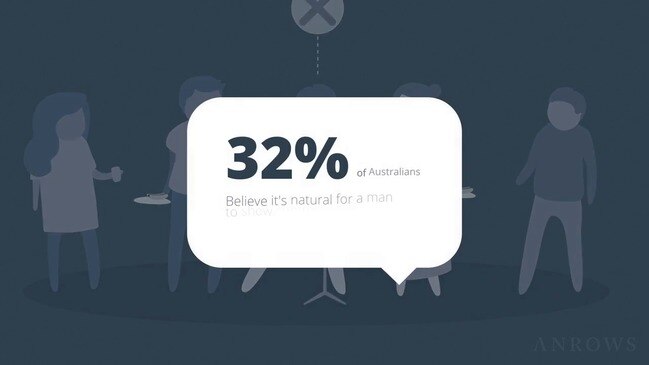Lauren Novak: Threats to publish nude images or demand sex are alarming but unfortunately not uncommon
A 20-year-old was jailed this week for blackmailing his teenage girlfriend with an explicit image. Where do these men get the idea that they can do this?

Where does a teenage boy get the idea that it’s OK to demand sex from his girlfriend? Or to threaten to publish nude images of her if she dares to say no?
Where does that sense of entitlement come from?
This week, The Advertiser reported on a reprehensible young man called Rocco Donato Foti, who, when he was 18, decided he had the right to pressure and blackmail his ex-girlfriend, then 17, to do whatever he wanted “whenever I f...ing ask”.
The now 20-year-old had been hounding the girl since he was 16, demanding sex acts and social-media passwords. He even had the gall to tell her she couldn’t wear a dress to school “because other males … would look and think she was single”.
Thankfully, she had enough self-awareness and self-worth to break up with him, block his messages and even raise a red flag with his mother – but frustratingly, that wasn’t enough to deter him. Eventually she had the courage to report him to police. Foti has since been jailed for a month – and apologised – after pleading guilty to threatening to distribute an invasive image. An initial charge of rape was dropped.
To be behaving this way at such a young age is alarming – but unfortunately not uncommon. Women’s safety groups say they are seeing younger and younger victims of abusive relationships, including in their early teens. And the beliefs that drive this shameful behaviour remain worryingly prevalent.

The latest National Community Attitudes towards Violence against Women Survey found one in 10 young blokes still think stalking is OK, and one in five does not view secretly tracking your girlfriend’s movements on a phone app as a form of abuse.
With such a focus nowadays on respectful relationships, where are these ideas coming from? Are parents modelling toxic relationships? Is it peer pressure? Porn?
Foti argued he was “having mixed emotions due to (his) parents breaking up” at the time of his offending.
Sorry, but that doesn’t fly.
There are men in the community who have been abused by their fathers or lost their mothers or sisters to domestic violence who have gone on to become anti-violence advocates. I desperately hope Foti’s month in jail is enough to make him rethink his entitled beliefs and learn there are other ways to manage problems he may be having.
But it’s unlikely he will do this on his own. The courts can – and should – mandate that he complete a rehabilitation program run by the Correctional Services Department.
It challenges small groups of men with abusive histories to understand what drives their choice to hurt women or children in their lives – rather than blaming it on outside factors.
Unfortunately, only half of participants complete the course but if it stops just one brute from continuing their violence or engaging in violence, it’s worth investing in.
Imagine what someone like Foti could go on to do if left unchecked. Data from frontline domestic violence services shows us there are hundreds of serial predators in this state who go from victim to victim repeating the same abusive patterns.
If we allow young men to get away with it, they will only become bolder, and more dangerous. Foti is a perfect example of the kind of perpetrator we should be focusing on to break the cycle early. Australian author Jess Hill focuses on this in her new book See What You Made Me Do, and gives examples of men who have made the effort and are now maintaining healthier relationships.
Of course, more funding is needed to do this laborious work with more abusers.
A blueprint released earlier this year by the State Government recognises the importance of changing abusive men’s behaviour and has a particular focus on young offenders or those at risk of offending.
It pledges to “explore” more rehabilitation options and ways to stop dangerous and disrespectful attitudes being passed down through families.
Action is promised in stages up to the state election in 2022 but, as yet, money is not committed to specific projects.
It cannot come soon enough to stop creeps like Foti.

